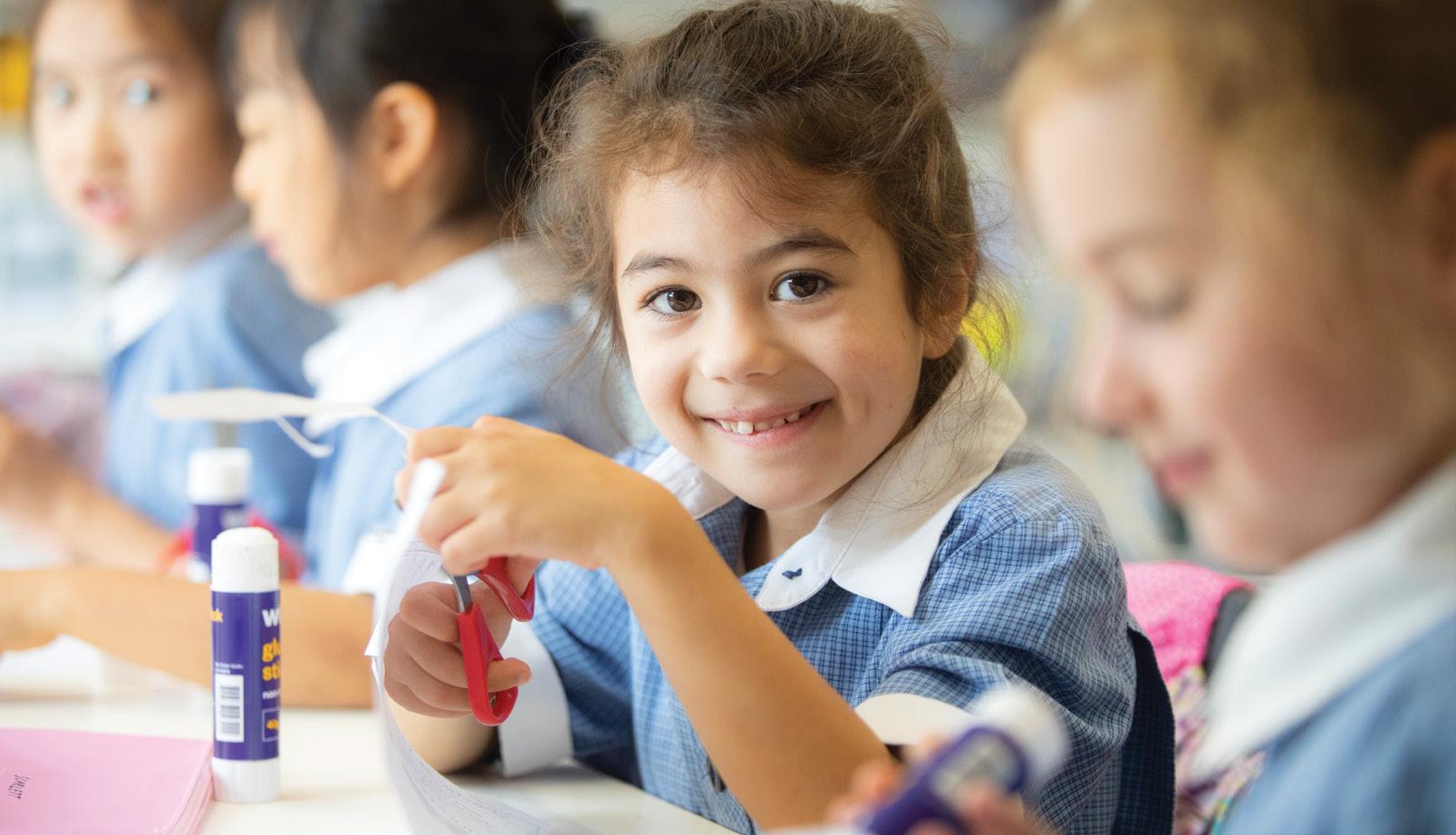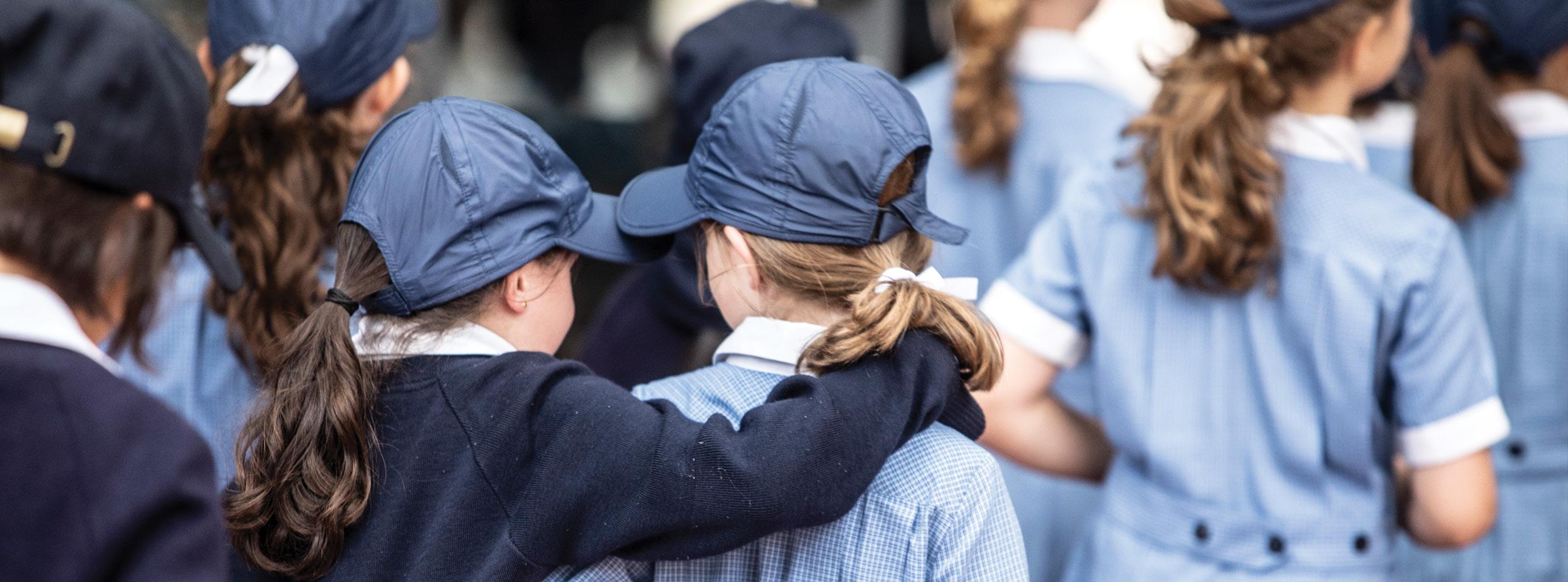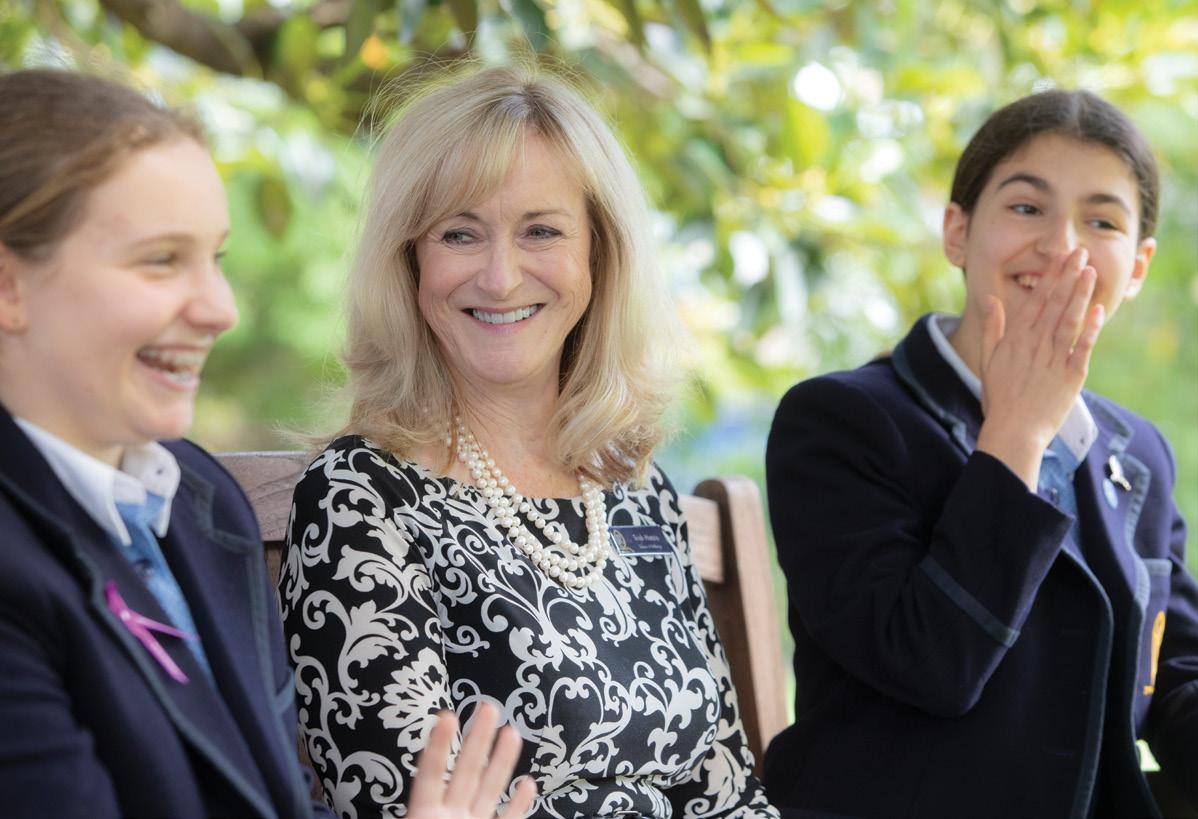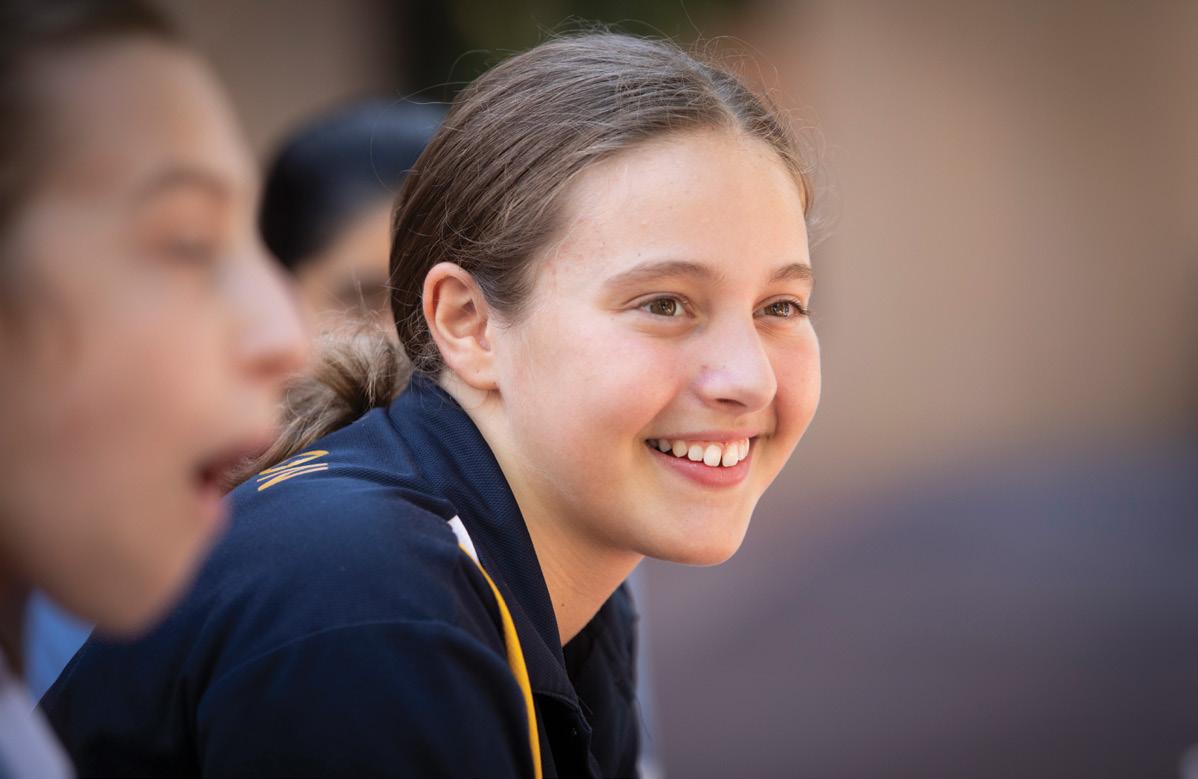
4 minute read
WELLBEING AT RUYTON
Ruyton’s approach to student wellbeing isbased on the knowledge that a student’s ability to flourish is maximised when their environment fosters optimal physical, social, emotional, spiritual, and cognitive wellbeing. We also know that our capacity to provide this optimal learning environment is enhanced when we work in conjunction with our families and wider community. This approach has certainly held us in good stead this year and it has been wonderful to see our School community, but in particular our Wellbeing teams, work tirelessly together to support each, and every student. Wellbeing should not be seen as a static concept but rather a continuum where starting points, developmental rates and emerging needs differ for each student. This variation has certainly been amplified in recent times and it became increasingly evident that wellbeing programs and structures needed tobe agile and responsive to the emerging needs and challenges faced by students and their learning cohort. Capturing the many ways in which we have provided student wellbeing support, whilst simultaneously addressing the significant challenges arising from the pandemic is difficult to do. Added to this challenge was our much-needed response to respectful relationship issues amplified through the courageous voices of young women striving to highlight the struggles faced in being heard, validated and empowered. To reflect on everything would require far more text space than we have in this edition of the Ruyton Reporter, so the following provides just a brief snapshot based on each of our five Wellbeing Pillars; Compassion, Relationships, Purpose, Engagement and Empowerment and the varied ways we have continued to engage and support students in navigating not only their own development but also the complex and at times, confronting world they live in. Compassion: for oneself and others Gratitude activities; breakfast clubs; homegroup and class-based wellbeing activities focused on lockdown fatigue, sleep, transitioning back to school, mental health, friendships, yoga and mindfulness; R U OK?Day activities; daily wellbeing check-ins. Relationships: to connect with otherswithintegrity and respect Workshops on consent, alcohol and drug use and safe partying; class Kahoots; virtual cooking classes; origami hearts; Connect sessions; morning teas and film nights. Purpose: to discover and celebrate one’s senseof self Passion projects; The Global Leadership Program; service projects; goal setting sessionswith mentors; virtual challenges. Engagement: to participate actively in one’s learning and life Virtual baking and crafts sessions; Olympic challenges; Recharge Wednesdays; life-skills sessions and virtual experiments. Empowerment: to utilise one’s strengths andnurture those of others Fundraising activities such as Backpacks 4 Vic Kids and a concert for Yemen; Elevateworkshops; careers exploration sessions; student-to-student mentoring.
Advertisement

It would be remiss of me to overlook the role that parents, and carers also played throughout 2021. It is through them, as first educators, that our work at School was supported and extended. Without their calm, reassuring guidance at home we would not have been assuccessful as we have been in educating and caring for their daughters. It has also been heartening to see such strong attendance at our Powerful Parenting evenings; even when parents and carers were in many instances managing the demands of distance learning with their own personal and professional commitments. An important focus of these parent evenings was to further equip parents with the skills and knowledge to support their daughters’ emotional and social wellbeing and development and in particular issues emerging on digital media platforms. It was for these reasons we engaged experts such as Peggy Orenstein, an international speaker on consent education, as well as Madonna King who spoke on the challenges of the pre-teen years. In addition, parents attended online presentations on body image by the Butterfly Foundation; Paul Dillon, who addressed the issue of adolescent alcohol and drug use as well as hearing a presentation by the Healthy Mind Project on the wellbeing of our much younger students. Many families also attended our TotalWellbeing Parent Conference, that offered a wide suite of wellbeing topics to choose sessions of particular interest and support for them. We should also recognise the contribution of parents and past students in providing letters of support, words of encouragement and the gratefully received student and staff pamper packs. To know ourendeavours were also being supported and appreciated by our wider community wascomforting. Finally, there is great merit in the saying ‘it takes a village to raise a child’ and Ruyton’s village, made up of parents, carers, our entire staff, leadership teams and our wider community members certainly confirms this long held belief. There is no doubt that without our combined efforts this year we would not have been as successful in supporting our students as we would have otherwise been.
Trish Hatzis Director of Wellbeing On behalf the Ruyton Wellbeing Teams












